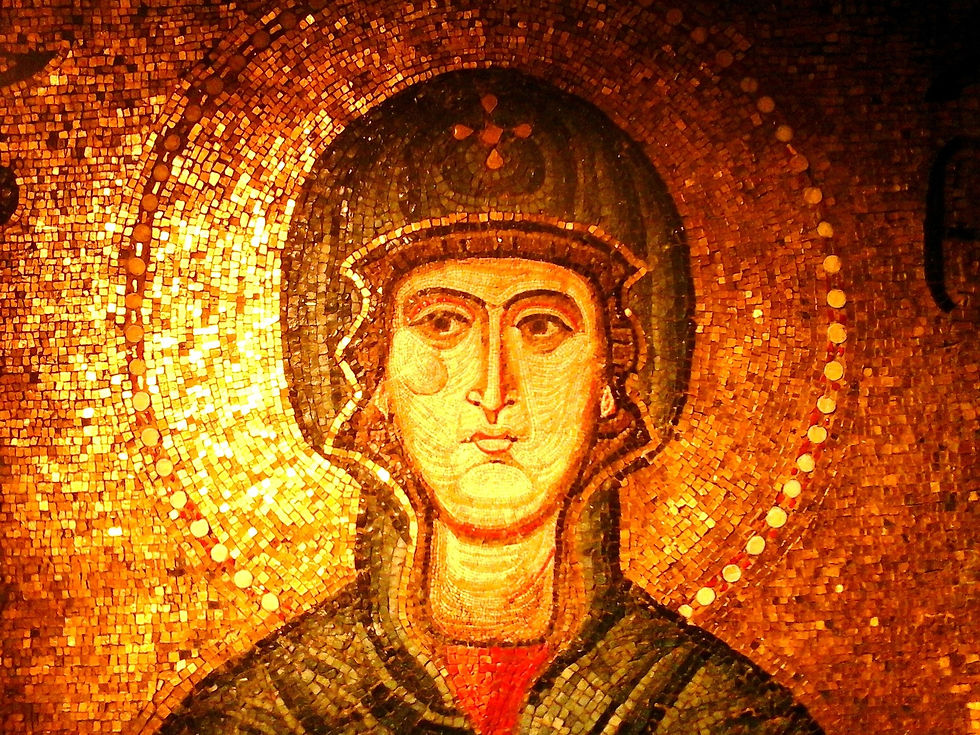Inside the Domestic Church Part 5: Theotokos and Theosis
- St. George Melkite Church

- Feb 24, 2019
- 2 min read
One of the most striking distinctions of Eastern Christians of the Byzantine tradition to visitors would be our title for Mary, Theotokos. Theotokos (Mother of God, literally “God-bearer) is actually a theologically rich and important title, however: in calling her Theotokos, we confirm two truths of the Christian faith: that Jesus is truly God, the Second Person of the Trinity, and that He is truly Man. In our churches, an icon of the Theotokos containing Christ in her womb is always placed high on the rear wall, which recalls that Mary bridges the gap between God and us by carrying Christ, who combines the human and the Divine, in her womb. Because of her unique role in Christian history, we give Mary honor above all the other saints, but of course as she remains human (and not Divine) we do not worship her; rather, we honor and remember her, just as we honor and remember so many of the holy men and women who have played a part in the grand revelation of God’s love.
We have talked previously about theosis, God’s gift to us of the sharing of His life. As we recall, 2 Peter 1:4 says that we have been made “partakers of the divine nature,” a process which begins with baptism, chrismation, and the reception of the Eucharist, and continues on throughout our lives (and even in death!). This is the core of the Gospel, the literal “Good News” that we proclaim again and again through our lives and through our liturgical cycle. God will led us into an ever-closer union with Him.
Especially in a world where the act of church-going can be tedious, dull, or even morbid, we must recall that our participation in the life of the Church is a joyous thing. Even during the somber services of Holy Week, we anticipate the joy of the Resurrection. Church isn’t the pious recitation of historical facts removed from our lives, nor a rote recital each Sunday necessary before we are free to eat lunch, but the celebration of the present reality of Christ in our midst.

The deacon calls out near the end of the liturgy “Now that we have received the Divine, Holy, Spotless, Immortal, Heavenly, Life-Giving, awesome mysteries of Christ, let us give worthy thanks to the Lord” and one would not begrudge a deacon announcing this spectacular truth with exuberance. The Church is a living thing, and it can be helpful for us to remember that we, too, are living and are members of the Church, not robots or mere observers.




Comments